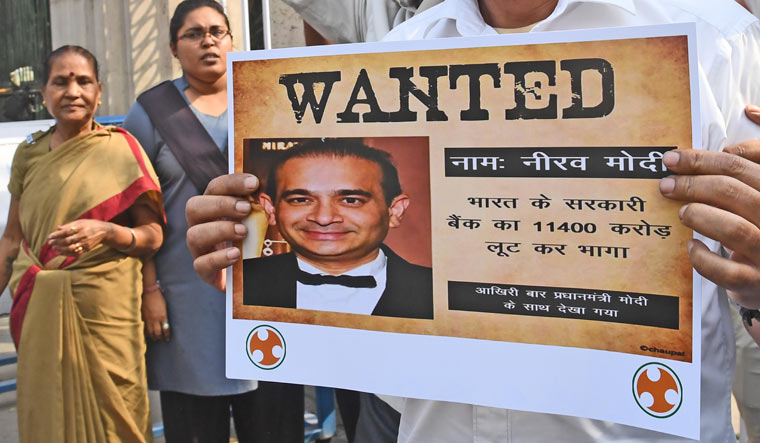The drill that a common man has to undergo in the country to get a bank loan is no secret. If repayment of the loan amount or the monthly interest is delayed, many banks do not hesitate even to send goons to threaten the defaulting debtor. While this is the plight of common people who are indebted to banks for small amounts, those who defraud banks to the tune of thousands of crores of rupees go scot-free. What a paradox!
The shocking fact that the Punjab National Bank (PNB) lost a whopping Rs 11,400 crore on account of fraud clearly points to the carelessness and lack of safety in the banking sector. The PNB scam, the biggest swindling in India’s banking history, has been going on smoothly for the last seven years. Nirav Modi, the main culprit, and his associates in the crime, obviously, received help and support from the higher-ups in PNB itself.
Also Read
- Strong earnings drive Kotak bank shares up over 9 per cent; several other banks gain
- RBI approves HDFC Bank to invest in Kotak Mahindra Bank and others
- Why rising stress in unsecured lending may need a closer watch
- Rural women benefit from post-office banking: More female IPPB accounts and DBT beneficiaries in 2024
All bank-related frauds are a result of the unholy alliance between customers and bank employees. The owner of Rotomac, Vikram Kothari, has been living in the country freely and happily for many years without repaying huge amounts until he was arrested just the other day. According to the CBI and the Enforcement Directorate, Kothari's bank loans amount to Rs 3,695 crore.
This comes even as Vijay Mallya fled the country after having failed to repay as much as Rs 9,000 crore. This incident should have been a great lesson for our banking sector. The question as to why the banks did not bring Mallya to book even after the unpaid loans aggregated to as much as Rs 9,000 crore still remains unanswered. Mallya’s fraudulence was a “test case” as to how banks land themselves in deep crisis by issuing loans without sufficient guarantee. However, our banks do not seem to have learnt any lessons from the Mallya incident.
During the last five financial years, as many as 8,670 cases of financial fraud were registered vis-à-vis public-sector banks. These cases involved a whopping Rs 61,260 crore. And, the banks were swindled to the tune of as much as Rs 17,634 crore during the past financial year itself. These figures were given out by the Reserve Bank of India (RBI) by way of reply to a query according to the Right to Information Act. However, the RBI could not ascertain how much money the banks could recover from the Rs 61,260 crore loaned. It must be noted that this sort of fraudulence of gigantic proportions has taken place in the banking sector where the rules, controls and monitoring are supposed to be strict.
This being so, how secure is the future of this sector?
According to unions of bank employees, the RBI, which is the bank of banks and has extensive regulatory powers, cannot eschew its share of responsibility in the PNB scam.
The PNB swindle reminds the country loud and clear of the need for the banking sector to be vigilant in the deals. Controls and monitoring in the banking sector must be made stricter in keeping with the advancements in technology. A strong system of internal audit should be in place to prevent cheating. Fraudster as well as those bank employees who aid them must be caught and punished.
(This article was originally published in the Malayala Manorama daily on February 20, 2018)

